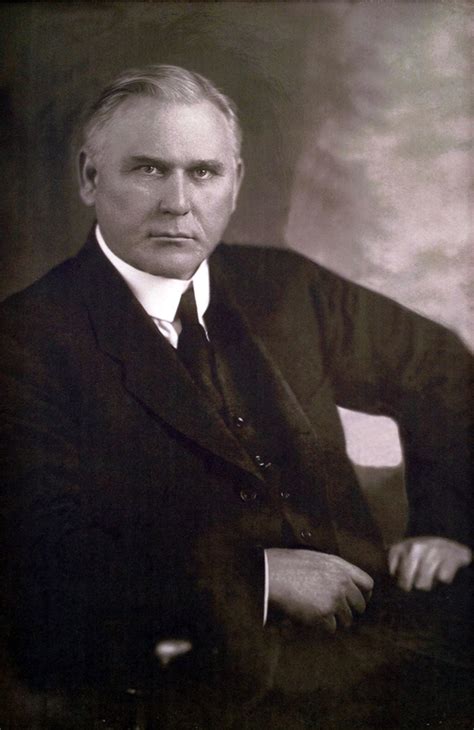A Quote by Dan Brown
The Bible, as we know it today, was collated by the pagan Roman Emperor Constantine the Great
Quote Topics
Related Quotes
In 325 A.D., the Roman Emperor Constantine decided to unify Rome under a single religion ... Historians still marvel at the brilliance with which Constantine converted the sun-worshipping pagans to Christianity. By fusing pagan symbols, dates, and rituals into the growing Christian tradition, he created a kind of hybrid religion that was acceptable to both parties.
Constantine, the Emperor, saw something in the religion of Christ's people which awakened his interest, and now we see him uniting religion to the state and marching up the marble steps of the Emperor's palace, with the church robed in purple. Thus and there was begun the most baneful misalliance that ever fettered and cursed a suffering world... When ... Constantine crowned the union of church and state, the church was stamped with the spirit of the Caesars.
It took time for the church to come to terms with the ignominy of the cross. Church fathers forbade its depiction in art until the reign of the Roman emperor Constantine.... Now, though, the symbol is everywhere: artists beat gold into the shape of the Roman execution device, baseball players cross themselves before batting, and cancy confectioners even make chocolate crosses for the faithful to eat during Holy Week. Strange as it may seem, Christianity has become a religion of the cross--the gallows, the electric chair, the gas chamber, in modern terms.
I think it's important to realise that what happens in Neo-Platonism beginning with Plotinus and Porphyry and then going on for the next several centuries, is a real kind of contest for the ideas and convictions of the intelligentsia of the later Roman Empire. So that you have Christians slowly converting more and more powerful people until of course actually Constantine and then other emperors after him, become Christian, and the empire becomes a Christian empire rather than Pagan empire.
Jesus himself, and most of the message of the Gospels, is a message of service to the poor, a critique of the rich and the powerful, and a pacifist doctrine. And it remained that way, that's what Christianity was up... until Constantine. :Constantine shifted it so the cross, which was the symbol of persecution of somebody working for the poor, was put on the shield of the Roman Empire. It became the symbol for violence and oppression, and that's pretty much what the church has been until the present.
The Pagan model of religion because, in the Pagan model, there were lots and lots of Gods and Goddesses. They were all incredibly beautiful and there were statues of them everywhere, which is the equivalent of magazines, or whatever, today. And they were fallible, which is different from being mono-, you know, Jewish or Islam (where) you have the infallible, monotheistic God.
The vestiges of pagan religion in Christian symbology are undeniable. Egyptian sun disks became the halos ... The pre-Christian God Mithras ... had his birthday celebrated on December 25 ... Even Christianity's weekly holy day was stolen from the pagans ... Christianity honored the Jewish Sabbath of Saturday, but Constantine shifted it to coincide with the pagans' veneration of the day of the sun ... To this day, most churchgoers attend services on Sunday morning with no idea that they are there on account of the pagan sun god's weekly tribute- Sunday.
The grateful applause of the clergy has consecrated the memory of a prince, who indulged their passions and promoted their interest. Constantine gave them security, wealth, honours, and revenge; and the support of the orthodox faith was considered as the most sacred and important duty of the civil magistrate. The edict of Milan, the great charter of toleration, had confirmed to each individual of the Roman world the privilege of choosing and professing his own religion.
In our own times, you see, an emperor came to the city of Rome, where there's the temple of an emperor, where there's a fisherman's tomb. And so that pious and Christian emperor, wishing to beg for health, for salvation from the Lord, did not proceed to the temple of a proud emperor, but to the tomb of a fisherman, where he could imitate that fisherman in humility, so that he, being thus approached, might then obtain something from the Lord, which a haughty emperor would be quite unable to earn.
For those who struggle with anti-pagan prejudices and stereotypes, Humanist Paganism might be a powerful educational tool. It can show that a pagan can be a sophisticated, cosmopolitan, and enlightened person, and that a pagan culture can be artistically vibrant, environmentally conscious, intellectually stimulating, and socially just.

































